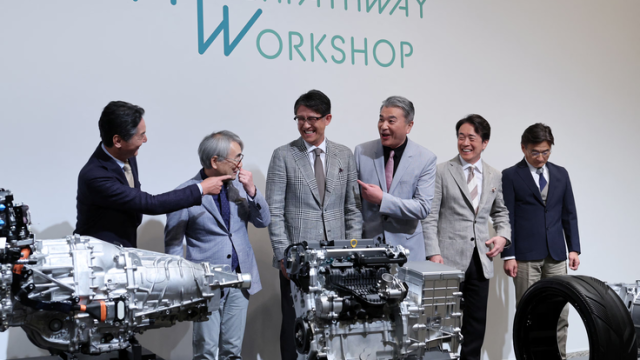Toyota Motor revealed its latest innovation – next-generation engines capable of powering a range of vehicles, including hybrids and those running on biofuel.
At a media event attended by industry peers Subaru and Mazda Motor, the world's leading automaker showcased in-development 1.5-litre and 2.0-litre engines that boast significantly reduced volume and height compared to their current counterparts.
"Innovations like these engines will enable each of the three companies to optimize integration with motors, batteries, and other electric drive units," the companies stated jointly.
Toyota holds a stake of about a fifth in Subaru and approximately 5% in Mazda.
The collaborative efforts aim to decarbonize internal combustion engines by facilitating compatibility with alternative fuel sources such as e-fuels and biofuels.
Additionally, the compact nature of these engines is anticipated to revolutionize vehicle design by allowing for lower hood profiles.
Toyota, once perceived as trailing in the EV race, has experienced a resurgence due to a slowdown in EV growth and an increased adoption of petrol-electric hybrids.
The move to refresh traditional engine technology echoes similar strategies undertaken by Mercedes-Benz, while BYD is poised to unveil new hybrid technology aimed at reducing fuel consumption.
Toyota disclosed that its new 1.5-litre engine would achieve a 10% reduction in volume and weight compared to its existing 1.5-litre engines, commonly found in models like the Yaris compact.
Similarly, the new 2.0-litre turbo engine promises comparable enhancements over the existing 2.4-litre turbo engines used in larger models such as three-row seating SUVs.
However, Chief Technology Officer Hiroki Nakajima refrained from specifying a timeline for the introduction of models equipped with these engines.
Automakers are grappling with increasingly stringent emissions standards, particularly in markets like the European Union.
Policymakers in the EU are progressing towards implementing emissions regulations dubbed "Euro 7" for cars and vans by 2030, with plans to ban the sale of new CO2-emitting cars by 2035.




















